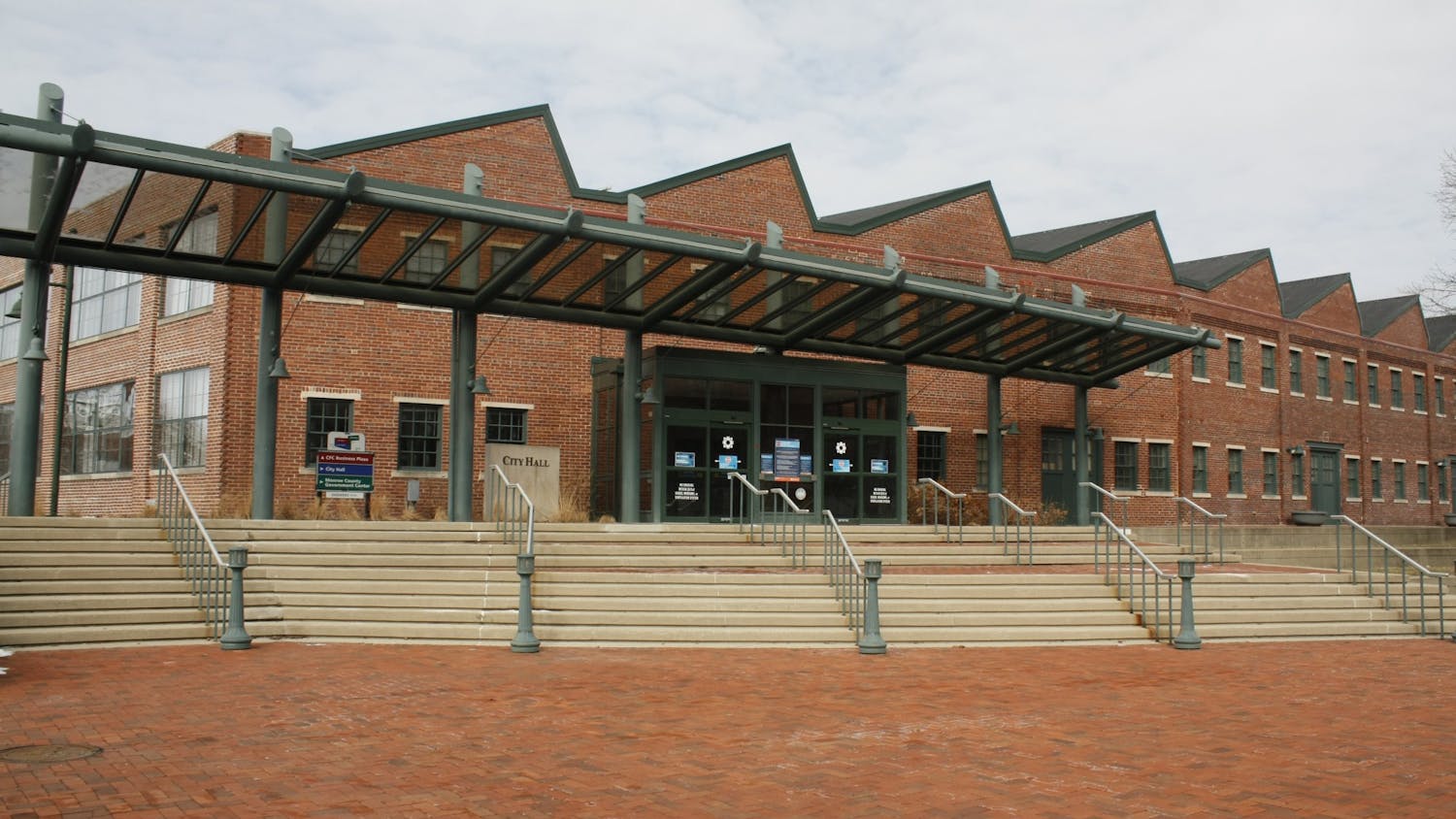Bloomington Mayor John Fernandez presented his 2002 budget to the city council Monday, calling for a 7.7 percent increase in spending. The budget, which would be financed with a property tax levy increase of 2.16 percent, met with a lukewarm reception.\nIt passed a preliminary vote 4-1, with four abstentions on the Democrat-controlled council. \nThree of the abstaining council members didn't have issues with the mayor's capital investment plan or his proposed additional funding for public safety. The three Democrats -- Chris Gaal, Andy Ruff and Jeffrey Willsey -- focused on a $78,000 subsidy to the Bloomington Economic Development Corporation, a private not-for-profit group that advocates economic growth.\nThe annual subsidy -- a small fraction of the city's requested $47 million budget -- has recently come under fire from leftist critics, who say the group has too much clout over zoning policy. They also take issue with its $5,000 membership fee, which they call exclusionary.\n"If you look through the zoning master plan, the BEDC has its fingerprints all over it," said Gregory Travis, a self-declared fiscal conservative activist who usually stakes out liberal positions. "Essentially, public policy-making is taking place by a non-elected private corporation"\nCouncil members echoed Travis' concern at Monday's meeting. Ruff called for a "democratization of the group," while Willsey suggested the city redirect the funding to "scholarships" for small businessmen so they can join the group.\nFernandez accused the councilmen of playing politics.\n"Sure, you can open it up and make it a more inclusive organization," he said. "But I've never heard any of them bring it up at a board meeting. It's ironic when they go harrumphing about democratizing the process in public. They've never expressed these concerns before."\nAnd the mayor said he will continue to support the group's role in fostering development and economic growth.\n"They demand this and they demand that," he said. "But not all innovation and improvement has to come from a council-passed ordinance." \nSeveral members of the development corporation, which sells businesses on relocating to the area and has long received public funding, defended the subsidy at the council meeting. Ron Tarsi, a former BEDC chairman, mockingly asked critics if they believed in a "job fairy."\nCouncil President Patricia Cole said she abstained for unrelated reasons. In spite of Monday's debate, Fernandez said he expects his budget to pass when it comes to a final hearing in September.\nIn his budget, Fernandez proposed to strengthen public safety by hiring three firefighters, another police dispatcher and an additional police officer. He also promised a $6 million park improvements bond and nearly $500,000 to sidewalk upkeep and renovation.\nThe city also hopes to retire a pair of high-interest bonds for renovations to police headquarters and the parks department. While the early retirement takes a $751,392 chunk out of the 2002 budget, Fernandez said it will save Bloomington taxpayers nearly $150,000 in the 2003 fiscal year and beyond.\nCity controller Tom Guevara said the city is also looking to establish a "Rainy Day Fund" under a new state law. The city already has $6.7 million in reserves -- roughly 30 percent of its general fund or main checking account.\n"It'll allow us to maintain our cash flow," Guevara said. "Property taxes are only collected twice a year, and that's one of our main sources of revenue. As soon as this is formalized, we hope to keep 15 percent stored away, a minimum of 10 percent."\nHaving a strong reserve, Guevara said, will improve the city's credit rating and make it eligible for lower interest rates. The state legislature passed the law this spring to allow local governments to set aside money for unforeseen contingencies.\nFernandez said much of the budgetary increase consists of "one-time investments," such as the establishment of the reserve fund. While the city is seeking a 2.16 percent increase in the tax levy, Guevara said homeowners and businesses are realistically looking at no more than a 1.67 increase in local property taxes. \n"We've come up with a very conservative estimate based on how much money we need to raise for the budget," he said. "It's set outside from the assessed value. Most people might even be looking at a flat rate."\nIn any event, a local property tax increase will remain under the statutory maximum of 5 percent for the sixth year in a row, Fernandez said. It's a campaign pledge he remains committed to.\n"It's important that we manage the city and do it in a way that's fiscally responsible," he said. "We can provide services and make capital investments without raising property taxes in any significant way, allowing our economy to remain vibrant."\nBut some contend Fernandez has been anything but fiscally responsible. Conservatives haven't taken kindly to the mayor's plan to purchase the financially beleaguered Buskirk-Chumley Theatre, which he presented to the city council Wednesday. \nFernandez has offered to put up $1.3 million from the city's general fund to pay down the theater's debt, which was incurred from extensive renovation. The expenditure, which would total 3 percent of the city's existing funds, is being considered as part of the 2001 budget. \n"If ticket sales don't maintain the venue, taxpayers shouldn't be coerced to pay for it," said Jim Billingsley, president of the Monroe County Taxpayers Association, a conservative watchdog group. "Contrary to what the mayor may think, this isn't New York City or Chicago... or even Indianapolis. It's almost redundant with the IU facilities."\nFernandez said the purchase is an attempt to maintain a downtown landmark and promote the arts as a tourist attraction. Fine art, he said, has long been one of Bloomington's main attractions.
$47 million city budget proposed
Mayor seeks 7.7% increase in spending
Get stories like this in your inbox
Subscribe





